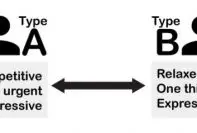Conditional Positive Regard is exactly opposite to Unconditional Positive Regard (UPR). In simple words, it can be defined as the acknowledgement and/or respect demonstrated towards someone in a conditional way. There are no restrictions as in the UPR.
Conditional Positive Regard isn’t exactly a theory of Rogers, but since it means exactly opposite to that of Unconditional Positive Regard, and those opposing the Rogerian theory automatically land on CPR, it’s one of the most interesting topics in Psychology.
There are always certain conditions to be met for a person to show positive regard, when it’s not unconditional.
For example: even within family members, an individual initiates a relationship within the other members they disregard for certain benefits.
To be more specific, a parent loves and supports his child as long as the child maintains A grade average and helps out on household chores. This is an example of Conditional Positive Regard as here, the condition is that the child has to maintain the A grade average in order to receive proper support from his parents (positive regard)
However, the parents providing love and support to the child regardless of his academic grade average would be an example of Unconditional Positive Regard.
A negative example for the lack of Conditional Positive Regard would be, a child coming out as homosexual, and his parents disregarding him or encouraging him to seek help for his “supposed medical condition”.
Again, here, the condition is the child’s sexuality, which lead to withdrawal of the positive regard by the parents.
If there was Unconditional Positive Regard, the child would be loved and the behavior of the parents would remain unchanged.
Comparison with Unconditional Positive Regard
Everyone who seems to disagree with the theory of UPR is agreeing with the Conditional Positive Regard, there is no other way. UPR seems bit too impractical for the real world; however, conditional positive regard is something that takes place on a daily basis. It might not be the best way to nurture a human being, in a modern world; a person well familiar with this sort of regard does develop street-smarts.




